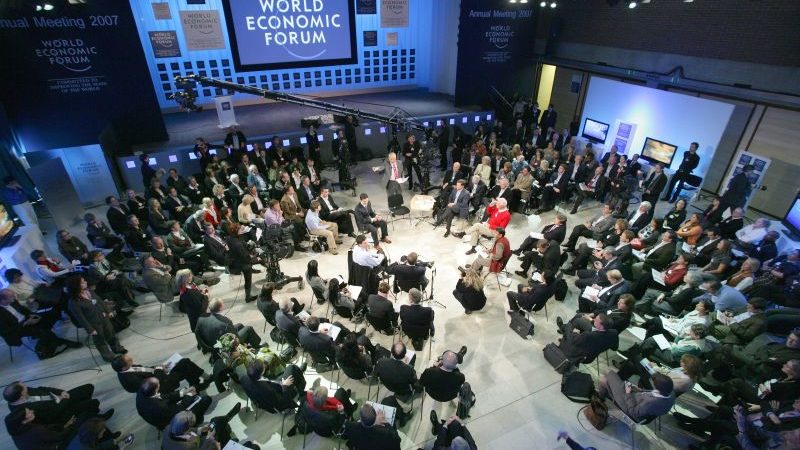The World Economic Forum at Davos will see elites gather to discuss our global future. But they won't back the solutions we need.

The third week of January is when the world’s elite meet in Davos, Switzerland, in the World Economic Forum. “Fairer economies”, “healthy futures” and “saving the planet” are in the agenda.
By the beginning of the week, the average FTSE 100 CEO will have earned in 2020 the median UK household disposable annual income (£29,400) seven times.
We live in a world and at a time where the wealth of 26 people equals that of the poorest half of humanity. If they got on a standard coach, all of them would have an empty seat to their side.
Their interests will be very present in Davos. Those of 3.8 billion people will not. But there is hope beyond the Swiss Alps. Campaigners around the world are launching a global protest to fight inequality with events in London (Saturday 18th), as well as Cambridge, Northampton and Carlisle next week.
Deregulation, privatisation, tax breaks for the wealthy, a diminishing welfare state, a race to the bottom on human rights… The solutions to the crises of our time must come from ordinary people living at the sharp end of inequality, not the ones who have caused it.
Those who know what poverty feels like should be listened to carefully. Ending poverty ought to be a priority for those of us believing in freedom, because addressing the root causes of poverty means safeguarding the material conditions to be free.
Both the causes and the consequences of global warming are unevenly distributed. Our future as a species depends on the actions we take today in the face of climate change and the inequalities that go with it.
Here in the UK campaigners are demanding fair taxation to end poverty and reduce inequalities. Capital gains and wealth should be taxed at least at the same level as labour income.
This is just the beginning of what will be years of critical scrutiny and tireless resistance to the policies of the ‘old new’ government. Even if some of the austerity trend was reversed, the effects of a decade of public underinvestment in social services will be felt for years.
In general, activists and campaigners tend to be much better at identifying what we are against. It is time to show what we are for as well. And, when they happen, celebrate small victories along the way.
We must raise the bar and come up with imaginative, doable and yet transformational solutions, learning from good practices in other jurisdictions and connecting the global with the local.
The UK faces many challenges and the change ahead of us is gigantic. But we should not forget that we live in a country that has the necessary resources to ensure an adequate standard of living for everyone. Human rights will be fulfilled when we meet this standard. And as citizens of this country, we should not accept anything less than that.
Find more information about events from the UK Fight Inequality Alliance here.
Koldo Casla is a lecturer at the Human Rights Centre (School of Law), University of Essex.
To reach hundreds of thousands of new readers we need to grow our donor base substantially.
That's why in 2024, we are seeking to generate 150 additional regular donors to support Left Foot Forward's work.
We still need another 117 people to donate to hit the target. You can help. Donate today.



